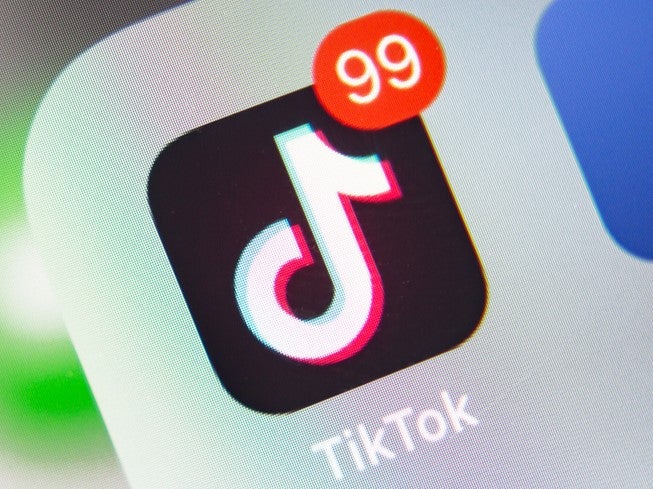More than 50% of Gen Z gets their health advice from TikTok
About 58 percent of respondents said they felt less secure about their appearance after using the app
More than half of Gen Zers are getting their wellness and diet advice from TikTok - despite warnings from experts that could be a bad idea.
Zing Coach, a personal trainer app, conducted a survey of 18- to 27-year-olds and found 56 percent of Gen Z users TikTok for wellness and diet advice. One in three get more wellness advice from TikTok than anywhere else and one in three don’t verify the information they see on TikTok.
Additionally, three in five people say they’ve seen health disinformation on the app. Still, only one in 10 believe that wellness content should be removed from TikTok.
The number of Gen Zers using TikTok for health advice has risen in recent years. In 2022, a similar survey found that only 33 percent of TikTok users used the app for health advice. Another 44 percent used YouTube before consulting their doctor.
The findings come despite health experts raising concerns about health advice on the internet. An April report by the University of Chicago found that nearly half of TikTok videos analyzed by researchers contained non-factual health information. A large proportion of the misleading videos came from nonmedical influencers.
“Every type of ‘Tok’ exists – that’s just how the internet works,” said Rose Dimitroyannis, a medical student at the University of Chicago said. “Little tiny segments of the population find one another and make waves.”
Non-factual videos can have real-world consequences, experts warned, as it can lead to confusion about treatments and prevention. It may also cause people to miss out on getting much-needed medical attention because they looked for alternative therapies.
“I frequently have patients in the clinic asking me questions about things they saw online or on social media, and I have found that many times the information has steered patients in the wrong direction,” study authory and surgeon Christopher Roxbury said. “In some cases, I see patients who have already sought out and undergone such treatment without any benefit; in rarer cases, they’ve been harmed.
“As a clinician, you can’t deny that anyone who comes into your office has probably looked something up — which is well within their rights to try to understand their health,” Dimitroyannis added. “At the end of the day, patients and physicians alike should understand the power of this tool, recognizing the downsides while acknowledging that there can be good quality information available as well.”
Researchers even found that of videos from people identifying as medical experts, about 15 percent included non-factual information. “If you’re a healthcare expert with any interest in content creation, you could make a difference,” Dimitroyannis said. “Someone could see your video and get the health information they need instead of seeing something that could hurt them.”

When Zing Coach asked, most Gen Zers said they turned to TikTok because the advice was free. Only 11 percent of people surveyed said they got medical advice from qualified professionals.
Another reason individuals said they preferred TikTok was because of the copious amounts of content on the app at their fingertips.
Still, Gen Z was at least somewhat discerning when choosing who to take advice from. About 66 percent of people said they only took the advice if it came from a doctor, nutritionist, athlete or someone with a similar background.
Blindly trusting the app came with its downsides: One in 11 people reported experiencing a negative health outcome after taking advice from TikTok and Gen Z reported having lower self-esteem as a result of using the app.
The survey found that 58 percent of respondents felt less secure about their own appearance after using the app, but still wanted to be able to access TikTok for advice.
According to the study, 89 percent of respondents said they did not want to see health advice videos restricted on TikTok. Instead, 63 percent of people said content creators should be held liable for harmful content they post.
Join our commenting forum
Join thought-provoking conversations, follow other Independent readers and see their replies
Comments
Bookmark popover
Removed from bookmarks